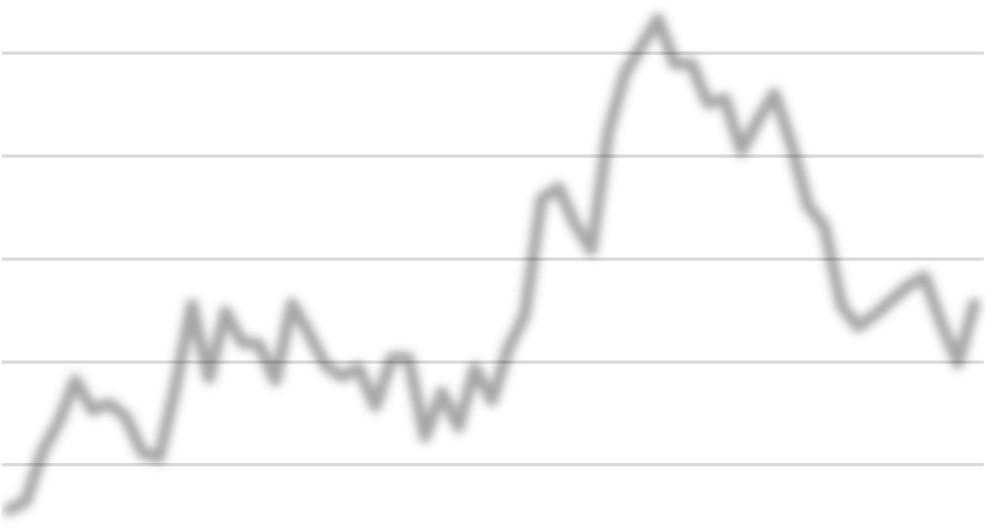


Economic Bulletin
















According to the Statistical Institute of Jamaica (STATIN), the local economy expanded by 2.50% year-over-year in Q3 2023 seasonally adjusted and 2.10% seasonallyunadjusted.Thisgrowthwas26% attributable to expansion in the goods producing sector and 74% to the services industry. Improved performance was recordedforallservicesindustriesexceptfor Producers of government services which experienced a 0.9% decline. In the goods producingindustriesMining&Quarryingwas the main driver as it experienced 103.10% growth which was able to offset the 9.30% declineintheAgriculture,Forestry&Fishing industry.

Thepoint-to-pointinflationrateforNovember 2023gained1.25%toendat6.25%,25basis points above the Bank of Jamaica’s (BOJ) 4%-6% inflation target. The primary drivers ofthis12-monthincreasewerethesurgesin the divisions of 'Food and Non-Alcoholic Beverages,' which saw a 7.38% increase, Transport 10.13% and 'Restaurants and AccommodationsServices,'wheretherewas asubstantial13.12%rise.Counterbalancing these increases, was a decline of 0.57% in the index for 'Housing, Water, Electricity, Gas,andOtherFuels.'

Despite the recent uptick in the domestic inflation rate the BOJ Monetary Policy Committee (MPC) upheld the 7.00% Policy InterestRateattheDecember2023meeting. TheMPCmeetsnextonFebruary20,2024, and the expectation is for the current policy rate to be maintained as they continue to observe the pass-through effects of increases on transportation costs and agricultural prices. Inflation is expected to remain above the target range as further wage adjustments are due for the private sector.


by 0.15% month-overmonth to the US dollar, with the weighted average selling rate (WASR) moving from $155.1891 at the end of November to close Decemberat$154.9504.

January-
US$
BetweenJanuaryandAugust2023,Jamaica spent a total of US$5,078.80 million on imports, while it earned a total of US$1,411.50 million from exports. This 1.40% decline in imports spending was largely attributableto lower imports of “Raw Materials/Intermediate Goods”, and “Fuels and Lubricants” which fell by 0.60% and 19.60% respectively. The growth in total exports exceeded the previous year by 29.00%, driven by substantial rises in the export of "Crude Materials (excluding Fuels)," which saw an increase of 24.30%. This ultimately causeda9.65% decreasein theBalanceofTradedeficit.
From January to August 2023, the US, China,Brazil,Japan,andColumbiaemerged as the primary nations from which Jamaica imported goods. Spending on imports from these countries saw a 0.80% decrease in comparisontothesameperiodin2022.This decrease was primarily driven by lower imports of fuel from the US. On the export
front, Jamaica's top five trading partners included the US, Puerto Rico, Latvia, the RussianFederation,andIceland.Exportsto these countries surged by 27.40%, totaling US$977.0millionduringtheperiod.
ThesecondestimatesfromtheUSBureauof Economic Analysis indicate that real GDP grewatanannualrateof5.20%inQ32023, upfromthepreliminaryfigureof4.90%.The report mostly showed downward adjustments to consumer spending, somewhat offsetting increased revisions to state and local government spending and non-residential fixed investment. Downward revisionstoimportswerealsomade.

Althoughthereturnofworkersfromtheauto strike increased employment in the manufacturing sector, reflecting, the unemploymentrateinNovember2023came in at 3.70%, 20 basis points above the previousmonth.Jobgrowthwasobservedin the health care and government sectors, while employment in retail trade declined considerably.Thepoint-to-pointinflationrate for Novembercameinat 3.14%,a10-basis point reduction from the 3.24% recorded in October.Existing-homesalesdeclinedagain in October by 4.10%, with a seasonally adjusted annual rate of 3.79 million, representing a14.60% year-over-year drop. Chief Economist at NAR, Lawrence Yun, highlightedthatpotentialhomebuyersfaced anotherchallengingmonth,grapplingwithan ongoing shortage of housing inventory and thehighestmortgageratesinageneration.
As labour market conditions soften and the inflation rate cools, the Federal Reserve maintained the policy rate range at its 22year high of 5.25% - 5.50% at the Federal Open Market Committee (FOMC) meeting onDecember13,2023.Aturnaroundinthe US equities market followed, with the S&P 500 Index up 1.37% daily, the Nasdaq Composite up 1.38% and the Dow Jones Industrial Average up 1.40%. The pause by themonetaryauthorityalsosawtheyieldon theUS10-yearTreasuries,whichinfluences mortgagerates,shedding16basispointsto endthedayat4.04%.
China
Indicator Oct Nov
CPI (YoY) -0.2% -0.5%
CPI Growth rate 0.4%(JanOct) 0.3%(JanNov)
PMI 49.5% 49.4%
Source: National Bureau of Statistics of China
For themonthof November 2023, theyearon-yearnationalConsumerPriceIndex(CPI) experienced adecline, with the cost of food decreasing by 0.9%, non-food items decreasing by 0.4%, the price of consumer goods decreasing by 0.5%, similar to serviceswhichrecordedadeclineof0.4%
China's manufacturing industry also experienced a slight decrease in its Purchasing Manager Index (PMI) relativeto October. This decline indicates a rather minute fall in the climate level of the manufacturing industry, but a continued contractioninthegeneraleconomy.Overall, the macro-control policies implemented led to the steady increase in production and supply, improvement in market demands, and continued stability in employment and prices. Thus, China’s national economy further consolidated its momentum for November, progressing on a continued positivetrendtowardseconomicrecovery.

Indicator
Source: Eurostat; the Statistical office of the EU
InNovember2023,EUoverallinflationfellto its lowest levelsince August 2021, primarily duetofallingenergyprices,withtheratenot exceeding 8% across member states. The EU’seconomicsentimentalsocontinuedan upwardtrajectory,thoughsignificantlybelow its pre-pandemic level of 105.1 in February 2020. Theimprovementof theESI was due tohigherconfidenceamongconsumersand constructionmanagers,howeverconfidence in industry, retail trade and services remainedbroadlyunchanged.
Despite the increase in retail trade for the region and a historic high for the service sector, GDP growth over the last four quarters of 2023 presented a rather flat trend.
Duetofavorablemacroeconomicconditions, a declining trend in inflation, sustained private sectorcreditgrowthand robust nonenergy sector activity, the Central Bank of Trinidad and Tobago has maintained the monetary policy rates at 3.50% for Decemberandbeyond,into2024.
The IMF maintains the growth outlook for Trinidad and Tobago at 2.50% in 2023 and 2.20% for 2024. However, macro-financial uncertainty in the global economy due to geopoliticaltensionsinboththeMiddleEast andLatinAmerica,threatenstosuppressthe trendingrowthandreigniteinflation.
Source: Central Bank of the Dominican Republic
For the month of November 2023, the Central Bank of the Dominican Republic (BCRD) further reduced its monetary policy rate (MPR) by 25 basis points to 7.00% annually. This rate was maintained for December 2023 and will be sustained for January2024andbeyond.
Notably, the Dominican Republic has recorded a significant decrease in year-on-

year inflation, leading to the rate being well withinthecenterofthetargetrangeof4.0% ±1.0%.Thisisattributedtothemonetaryand fiscalpoliciesimplemented,aswellaslower domesticdemandpressures.Itisforecasted that inflation will remain within the target range going forward under an active monetarypolicyscenario.Theeconomyhas also maintained a trend of growth since October 2023, and it is expected that monetary stimulus and greater public investment will continue to boost economic activity towards potential growth of 5% in 2024, which would be one of the highest expansionsinLatinAmerica.
Overall,theDominicaneconomyisinagood position to continue facing the challenging panorama, considering the strength of its macroeconomic fundamentals and the resilienceoftheproductivesectors.
Mexico Indicator Oct Nov Dec
Source: Banco de Mexico
During the third quarter of 2023, economic activity in Mexico continued experiencing robust growth as it registered a quarterly growth 1.07%. This was as a result of the continuedupwardtrendprivateconsumption and increases in certain subsectors of the manufacturing industry. The labor market also remained robust, with national and
urban unemployment rates maintaining at their lowest margins. Although general inflation is experiencing a slight upward trend, inflation expectations implied by market instruments remained relatively stable, while the inflation risk premium declined. Notwithstanding, inflation is still projectedtoconvergetothetargetof3%by thesecondquarterof2025.
Asaresultofthesefactors,thecentralbank opted to maintain the reference rate at 11.25%forDecemberandinto2024
Colombia
-0.4% N/A N/A
Rate 9.9% N/A N/A
Source: Banco de la República Colombia
The Central Bank of Colombia reduced the monetary policy rate by 25-basis-points effectiveDecember2023.Thisdecisionwas taken due to persisting risks and uncertainties on the inflationary and macroeconomic fronts Annual inflation has decreased and remains on a downward trend due to a significant decline in core inflation. However economic activity continuestodecelerateashighlightedbythe economic tracking indicator, with the manufacturing and construction industries

witnessing the most substantial declines. Consequently,therewasaslightdecreasein the growth forecast for 2023 from 1.2% to 1.0%.
Going into 2024, the most immediate concern revolves around the uncertainty regarding the impact of an increase in the minimum wage on the economy. The inherent risks associated with the El Niño phenomenonanditspotentialimpactonfood and energy prices, the elimination of the subsidyondieselfuel,andtheimpositionof taxes on ultra-processed foods also remain concernsfortheimmediatefuture.
Peru
Source: Central Reserve Bank of Peru
The Central Reserve Bank of Peru (BCRP) has continued the trend of reducing the monetary policy rate effective December 2023. This decision was influenced by the decreaseinbothheadlineandcoreinflation fortheperiod.Despitethisdecreasingtrend, however, both indicators remain above the upperlimitoftheinflationtargetrange.
Thedownwardtrendinyear-on-yearinflation is forecast to continue, reaching the target range at the beginning of 2024, due to the sustaining contributions of a moderation in theimpactofinternationalprices,areversal of agricultural supply shocks, and lower projectedinflationexpectations.Notably,the leading and expectations indicators for
economic activity in November showcase mixedopinionswiththemajorityremainingin pessimistic territory. Economic activity and domesticdemandcontinuetobeaffectedby social conflicts, the El Niño phenomenon, and globaluncertaintiesdueto international conflicts,andlowergrowthratesinChina.
TheCentralBankofChilecontinueditstrend ofreducingthemonetarypolicyrate,leading toadeclineof110-basis-pointsfortheperiod October to December 2023. This decision aimedatsustainingthedecliningtrendofthe inflation rate, as showcased in the annual CPI.Itisprojectedthatinflationwillconverge withinthetargetrangeof3.0%bythesecond half of 2024. However, the expectations of households and companies remain pessimistic. Nonetheless, spending and consumption by the private sector showed an incipient increase while investments remainedweak.

The Jamaica Stock Exchange (JSE) closed the curtains on 2023 with a sobering performance, facing challenges that led to significant declines in both the main market and the junior market. Data from the JSE revealedthatthemarketcapitalizationforthe main market, representing the combined valueofallcompanieslisted,experiencedan $80.3 billion drop compared to the previous year. Concurrently, the junior market saw a decrease of $8.6 billion. These declines culminated in a combined loss of $88.9 billion for companies listed on both indices, erasingthegainsmadein2022andmarking the largest annual loss since the market's downturnin2020amidtheglobalpandemic.
Several factors played pivotal roles in the JSE's poor performance. The global landscape witnessed central banks aggressivelyraisinginterestrates,impacting investor sentiment. The swift and robust response by central banks left many investors wary, and their apprehension reverberatedthroughthestockmarkets.The multibillion-dollar fraud scandal at Stocks andSecuritiesLimited(SSL),whichsurfaced inJanuaryoftheprecedingyear,alsocasta shadowoverthe market,further dampening investorconfidence.
AstheJSEnavigatesinto2024,market participantsarecautiouslyoptimisticabouta potentialturnaround.Themarkethas experiencedfourconsecutiveyearsof decline,beginningwiththeonsetofthe pandemicin2020.Expertsbelievethatafull
marketrecoverymaymanifestin2025, citingtheinevitabletiminglagassociated withsignificanteconomicshifts.Whilethe marketfacesheadwindsentering2024, thereishopeforrecoveryinthecoming years.TheJSE'sabilitytoadaptto changingcircumstances,coupledwith globaleconomicstabilization,willplay pivotalrolesindeterminingthetrajectoryof itsperformanceintheyearstocome.
Sources: Statistical Institute of Jamaica (STATIN),BankofJamaica(BOJ),Planning Institute of Jamaica (PIOJ), Bloomberg, International Monetary Fund (IMF), Observer, Gleaner, US Bureau of Labour Statistics, US Census Bureau, Institute for SupplyManagement,NationalAssociationof Realtors,CentralBankofBarbados,National Bureau of Statistics of China, Central Bank of the Dominican Republic (BCRD), Banco deMexico,BancodelaRepúblicaColombia, Central Reserve Bank of Peru, Banco CentraldeChile,Eurostat,





* Projections are taken from Bloombergsurvey ofeconomists as of November 21, 2023
